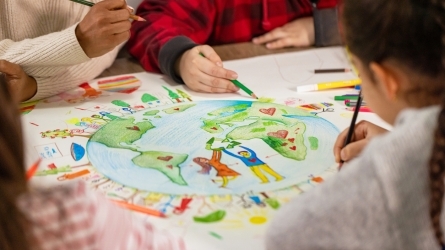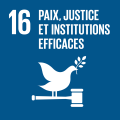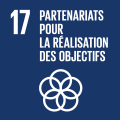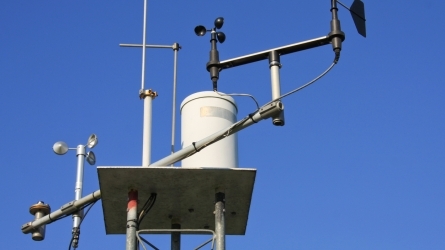
Cultura, Euskera y Desarrollo Sostenible: Hacia un Futuro Común
En este Curso de Verano se analizará el papel de la diversidad cultural y lingüística en el desarrollo sostenible, en particular en Euskadi.
Description
En septiembre de 2024 tuvo lugar en Nueva York la Cumbre del Futuro, con el doble objetivo de acelerar los esfuerzos para cumplir los compromisos internacionales existentes, por un lado, y por otro, tomar medidas concretas para responder a los nuevos desafíos y posibilidades.
La Cumbre fue un evento de alto nivel, que reunió a las autoridades mundiales para forjar un nuevo consenso internacional, a fin de mejorar el presente y salvaguardar el futuro. En el marco de la Cumbre, jefes y jefas de Estado y de Gobierno, en la Sede de las Naciones Unidas, aprobaron el Pacto para el Futuro con el que se dio inicio a una nueva etapa en el compromiso global, para desarrollar un plan de acción a favor de las personas, el planeta y la prosperidad.
El Pacto para el Futuro es un pacto negociado intergubernamentalmente y orientado a la acción, con capítulos sobre desarrollo sostenible y financiación del desarrollo; paz y seguridad internacionales; ciencia, tecnología e innovación y cooperación digital; juventud y generaciones futuras; y transformación de la gobernanza mundial.
En este contexto, en este Curso de Verano se analizará el papel de la diversidad cultural y lingüística en el desarrollo sostenible, en particular en Euskadi, siendo sus temas clave:
- Cultura y diversidad lingüística en los ODS: Relevancia de la cultura y las lenguas en la Agenda 2030, con énfasis en el ODS 18 Euskadi y su contribución a los ODS 4, 11 y 16.
- Euskera: El euskera como pilar fundamental de la diversidad cultural y lingüística en Euskadi. Su preservación y promoción juega un rol fundamental en el fortalecimiento de la identidad, la cohesión social y la diversidad.
- Tecnología y digitalización: Cómo las nuevas tecnologías pueden ayudar u obstaculizar la revitalización de las lenguas no dominantes y la diversidad cultural.
- Políticas públicas y gobernanza: Cómo los gobiernos y las organizaciones pueden integrar la diversidad lingüística y cultural en sus estrategias de desarrollo sostenible.
Objectives
Analizar el papel de la diversidad cultural y lingüística en el desarrollo sostenible, explorando tanto los logros alcanzados como los desafíos futuros en el marco de la Agenda 2030 y el Pacto para el Futuro.
Generar nuevas propuestas para integrar la diversidad cultural y lingüística, como ejes fundamentales en los desafíos globales y como motor de transformación hacia sociedades más sostenibles, resilientes e inclusivas.
Activity directed to
- All public
- University student
- Students not from university
- Teachers
- Professionals
Directors

Estíbaliz Sáez de Cámara Oleaga
Universidad del Pais Vasco/Euskal Herriko Unibertsitatea (UPV/EHU)
PhD in Environmental Engineering and professor in the ‘Environmental Technologies’ area in the Department of Chemical Engineering of the Environment at the School of Engineering in Bilbao. Since 2017 she is the Director of Sustainability and Social Commitment at the UPV / EHU. She is in charge of promoting and planning, along with the Vice-Rectorrate of Scientific and Social Development and Knowledge Transfer. She is a member of the Academic Committee of the Master Circular Economy: Business Aplication. Furthermore, she is the vicepresident of the Spanish Network for Sustainable Development (REDS).
Registration fees
| Face-to-face | Until 08-07-2025 |
|---|---|
| 0 EUR |
Venue
Bizkaia Aretoa-UPV/EHU
Avenida Abandoibarra, 3. 48009- Bilbao
Bizkaia
Bizkaia Aretoa-UPV/EHU
Avenida Abandoibarra, 3. 48009- Bilbao
Bizkaia
Sustainable development goals
Agenda 2030 is the new international development agenda approved in September 2015 by the United Nations. This agenda aims to be an instrument to favour sustainable human development all over the planet, and its main pillars are the eradication of poverty, a reduction in equality and vulnerability and fostering sustainability. It is a unique opportunity to transform the world up to 2030 and guarantee human rights for all.

4 - Quality education
Guarantee quality education that is inclusive and equitable and foster opportunities for lifelong learning for everyone. Key issues: free-of-charge, equitable and quality education, access to higher education and training on an equal basis, education for sustainable development, suitable education centres for persons with disabilities, and safe, non-violent and efficient learning environments.
More information
16 - Peace, justice and strong institutions
Foster peaceful and inclusive societies for sustainable development, facilitate access to justice for everyone and construct efficient and inclusive institutions that are accountable at all levels. Key issues: a reduction in violence, mistreatment and exploitation, the rule of law, equal access to justice, a reduction in corruption and bribery, efficient and transparent institutions, participation, access to information, protection of fundamental freedoms.
More information
17 - Partnerships for the goals
Strengthen the means of implementation and revitalise the World Alliance for Sustainable Development. Key issues: mobilisation of resources, 0.7% of GDP for official overseas development aid, finances, cooperation in technology and innovation, ecologically rational technologies, skills building, universal and multilateral trade system, coherence on the legislative and institutional levels, availability of data, supervision, indicators and accountability.
More information




